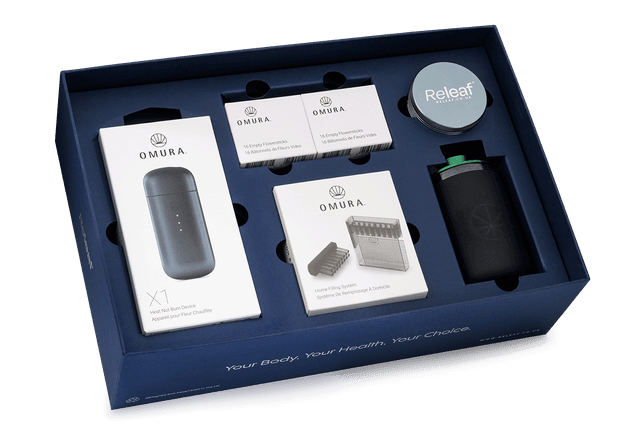Originally published in the Worldwide Congress on Genetics, Geriatrics and Neurodegenerative Diseases Research conference paper, and uploaded online on August 16th 2023, this study used the scores of patient questionnaires to evaluate cannabis’ therapeutic outcomes.
One hundred participants took part, and 58% of these were using cannabis-based products to manage a neurological disorder at the time of enrolment.
Of these respondents, a staggering 96% reported a decrease in their symptoms after administering these products, and there were several other therapeutic benefits also noted.
Key findings: Quality of life in patients receiving medical cannabis
By calculating the answers patients gave to the SF-36 Health Survey and a socio-demographic and clinical questionnaire, researchers revealed 79% of this group experienced an improvement in their sleep when taking medical cannabis.
An improvement in appetite was also noted by 71% and better energy and vitality was reported by 68% of participants.
It was also found 85% of the medical cannabis patients that took part had disclosed their cannabis consumption to their families, and 93% were enjoying the support that this offered.
Almost 9 in 10, or 88%, said they were able to perform their professional duties after receiving medical cannabis, which also had a positive influence on their quality of life.
However, the team also uncovered that 81% had not revealed their use of medical cannabis in their social environments.
Key considerations and the potential for further research.
On the surface, this paper demonstrates that, for this group of patients, medical cannabis has significantly improved their health related quality of life – improving their condition symptoms, and their overall sleep, appetite, and energy levels.
However, despite this clear improvement, less than 20% of these respondents had introduced their medication into their social environment when the survey was conducted, despite it being a completely legal form of medicine. This poses the question: why?
The most logical answer, and the one implied by this paper's abstract and introduction, is due to the plants' demonisation, stigmatisation, and criminal connotations. However, this could also be a fallacy, as the survey fails to ask if these patients have previously revealed their usage of other prescribed medications or treatments in social situations.
This theme is not explicitly explored in this paper, but investigating why patients may be reluctant or fearful of revealing their medication usage in social environments is an avenue well worth exploring. This would add a new dimension to the growing body of evidence that analyses the health related quality of life experienced by medical cannabis patients.
The existing evidence: Medical cannabis and quality of life.
The relationship between medical cannabis and quality of life is a subject that has become increasingly popular among researchers around the world in recent years.
For example, last year Drug Science published an analysis of the UK’s largest medical cannabis registry, and revealed that after three months of being treated with cannabis-based medicines, only 3.4% had reported no improvements.
A considerable improvement was noted by 20%, and over a third (35.3%) said that medical cannabis had made a real and worthwhile difference to their lives.
This data was generated using the Global Impression of Change Scale answers given by patients enrolled in Project T21. This questionnaire assesses any changes in overall quality of life, symptoms, emotions, and ability to complete activities when new treatment plans are started.
Over all, 55.3% of respondents in the UK reported that medical cannabis had made a considerable or worthwhile difference to their quality of life. A further 40% reported that there had been some degree of improvement, and less than 4% reported no change.
These findings are strengthened by the results of another large scale study, this time conducted in Australia. Much like the Greek study, this investigation analysed the answers medical cannabis patients gave to SF-36 Health Surveys during a series of follow-up appointments.
The SF-36 survey splits factors that contribute to quality of life into 8 categories. Three categories relate to limitations in physical, social, or usual activities due to their health, whilst the others evaluate general wellbeing, mental health, bodily pain, energy, and health perceptions.
In this Australian study, which was also published in 2022, significant improvements in every single category were reported.
Over 3,000 patients were observed and completed questionnaires during 15 follow-up consultations to generate this data, which demonstrates the widespread and repeated benefits that can be experienced when using cannabis-based treatments.
However, this study did also report a large occurrence of adverse events. Most were mild or moderate, such as experiencing a dry mouth, or feeling more tired or sleepy than usual, but there were 86 incidents over the 4-year data capture period that were categorised as ‘severe’.
Their conclusion reads:
“This study suggests a favourable association between medical cannabis treatment and quality of life among patients with a diverse range of conditions. However, clinical evidence for cannabinoid efficacy remains limited, and further high-quality trials are required.”
Conclusion
A persons' quality of life is influenced by their health, happiness, abilities, and perceptions, which in turn affects every single aspect of their life. And so, ensuring that patients who live with debilitating, distressing or chronic conditions experience the best quality of life possible is imperative in the development of healthcare. Recently, medical cannabis has been edging closer to the centre of scientific investigation in this area, and this paper is the latest to demonstrate a connection between cannabis consumption and an improvement in quality of life scores. Although cannabis-based research is still very much in its infancy stages, hopefully in the future, more clinical research will be conducted in this field to further explore and verify the therapeutic benefits medicinal cannabis can have on a patient's quality of life.
If you, or a loved one, require an alternative approach to managing your health condition, Releaf is here to help. Our monthly medical cannabis packages are based on your cannabis prescription, and we offer specialist consultations for medical cannabis and a unique medical cannabis card for protection






